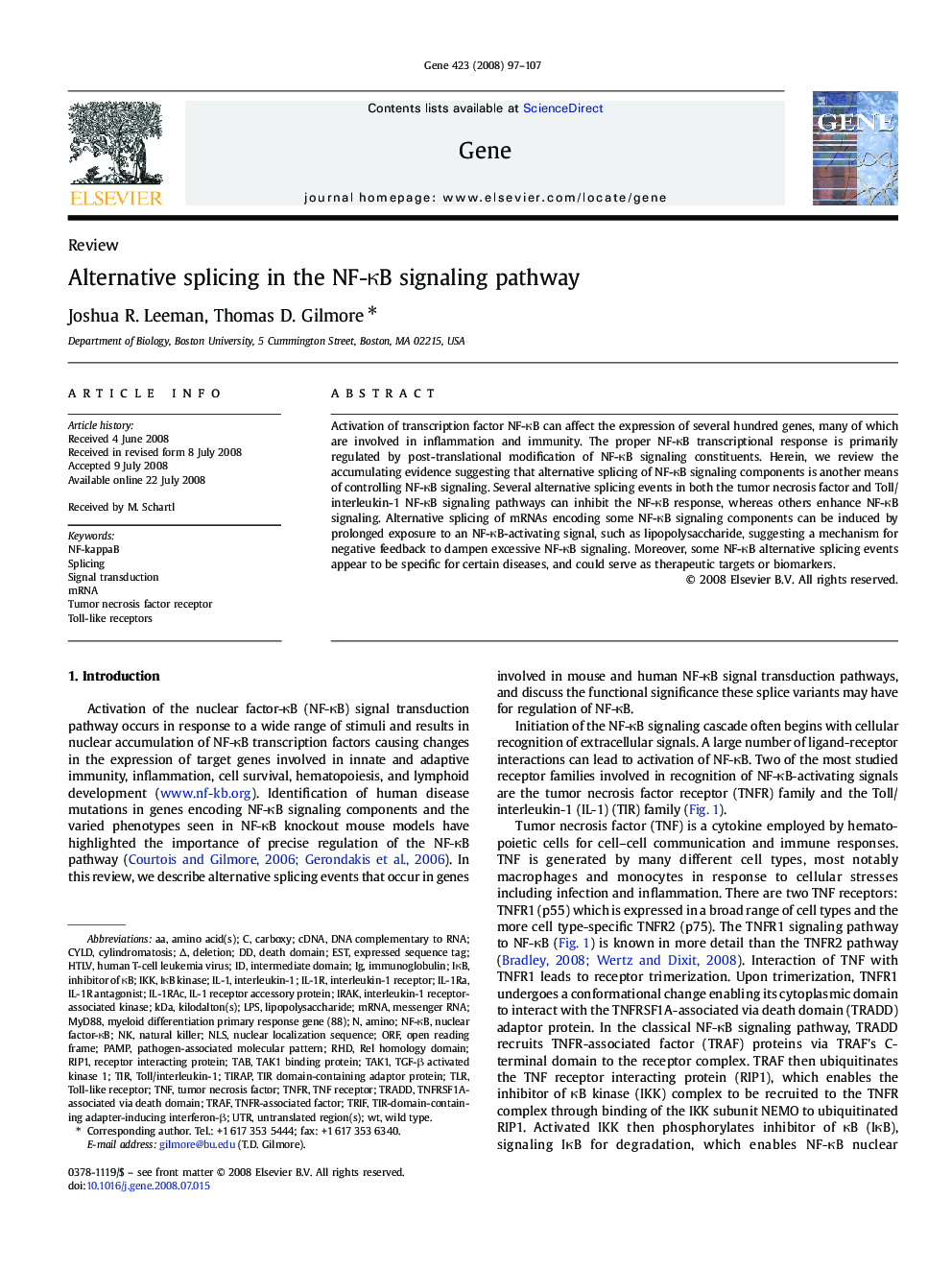| Article ID | Journal | Published Year | Pages | File Type |
|---|---|---|---|---|
| 2819119 | Gene | 2008 | 11 Pages |
Activation of transcription factor NF-κB can affect the expression of several hundred genes, many of which are involved in inflammation and immunity. The proper NF-κB transcriptional response is primarily regulated by post-translational modification of NF-κB signaling constituents. Herein, we review the accumulating evidence suggesting that alternative splicing of NF-κB signaling components is another means of controlling NF-κB signaling. Several alternative splicing events in both the tumor necrosis factor and Toll/interleukin-1 NF-κB signaling pathways can inhibit the NF-κB response, whereas others enhance NF-κB signaling. Alternative splicing of mRNAs encoding some NF-κB signaling components can be induced by prolonged exposure to an NF-κB-activating signal, such as lipopolysaccharide, suggesting a mechanism for negative feedback to dampen excessive NF-κB signaling. Moreover, some NF-κB alternative splicing events appear to be specific for certain diseases, and could serve as therapeutic targets or biomarkers.
